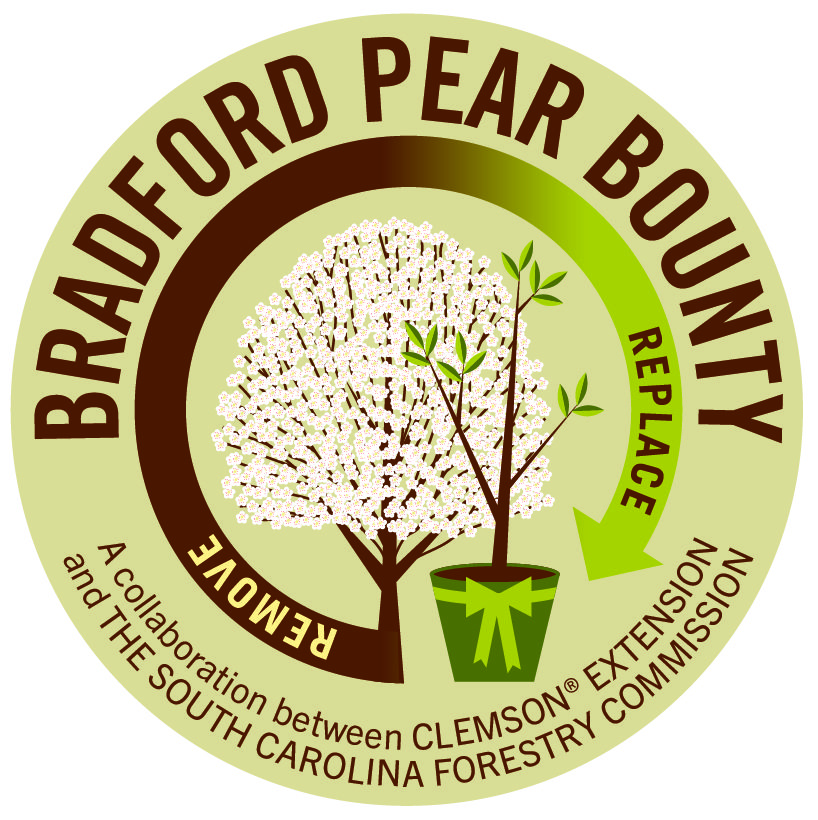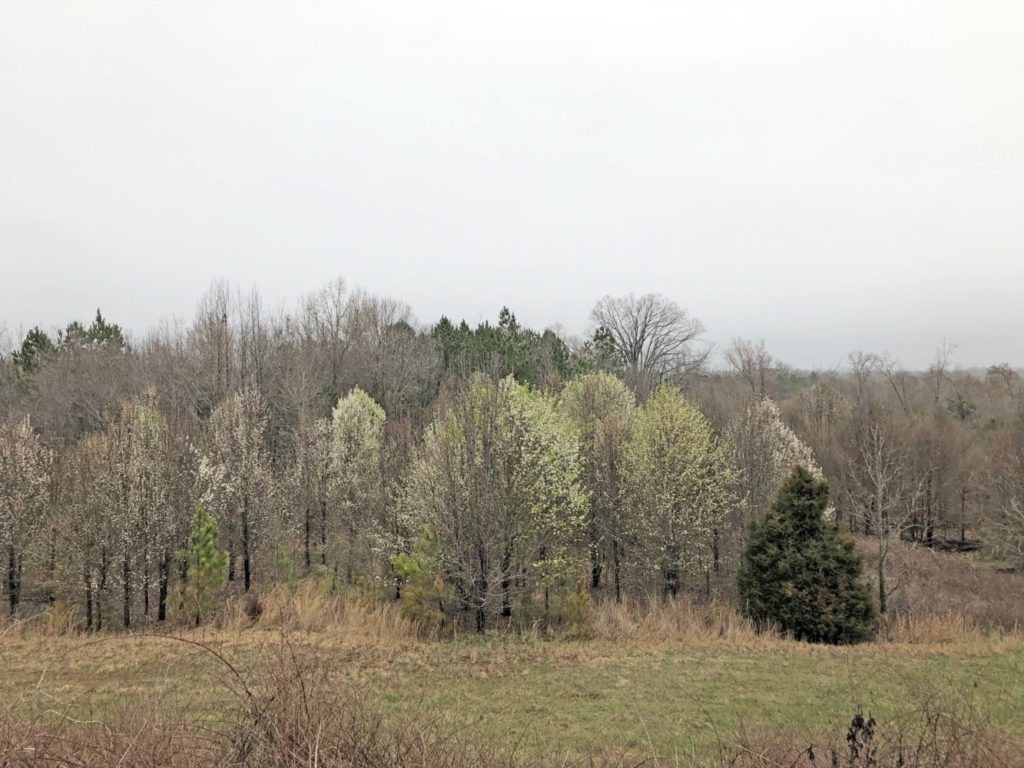Clemson University Cooperative Extension issued the following announcement on October 14.
An event aimed at easing the impact of an invasive tree species that has been a thorn in South Carolina’s side, and produced many thorns along its roadsides, is set for the Midlands this fall.
As part of the Bradford Pear Bounty program, Clemson University is holding a Fall Bounty at its Sandhill Research and Education Center at 900 Clemson Road, Columbia, from 1-4 p.m. Oct. 23.
Pre-registration is required at the event, which encourages property owners to exchange up to five Bradford Pear trees for an equal number of free, healthy, native, young replacement trees.
Previous events have been held in the spring in Clemson and Sumter, but this is the first Bounty event to take place in the fall. Organizers are planning at least three spring events next year in locations to be named later.
“The only difference is this event is in the fall instead of the spring,” said David Coyle, assistant professor in Clemson’s Department of Forestry and Environmental Conservation. “It’s going to be operated the exact same way.”

The event is sponsored primarily by Gills Creek Watershed Association (GCWA), which works to protect and restore Gills Creek, and Columbia Green, with additional contributions from Abacus, Grimball Cotterill, Sox and Freeman, and Walmart.
GCWA Executive Director Carmony Adler said the organization is excited to bring the event to the greater Columbia area to help homeowners improve water quality in their own backyards.
“Not only does this event allow residents to remove harmful invasive trees, but in an area that suffers as much from flooding as the Gills Creek Watershed does, replacing invasives with native trees allows us to actually prevent erosion and thus sedimentation of the creeks during these heavy rain events, since native trees have a deeper and more extensive root system than invasives,” she said. “It’s a small action individual homeowners are taking that, when combined, can actually have a significant impact in improving our Watershed’s ecosystem and water quality.”
Any South Carolina resident can participate, but only the property owner may register and must come in person to show a picture of the cut-down Bradford pear tree to get a replacement. The event is first come, first served — tree reservations are not accepted.
Bradford pears are common all over the Southeast and have been planted for decades because of their attractive white blossoms and lollipop-shaped green canopy. But while they were once touted as sterile, those and other Pyrus species are actually not entirely sterile.
“If pollen from any other Pyrus gets into that flower, it can make a viable seed,” Coyle said. “Those seeds are eaten by birds and spread across the Southeastern landscape, contributing directly to one of the worst invasive plant species in the region — the Callery pear.
Not only do Callery pears have nasty thorns that can damage everything from tractor tires to livestock, but the damage they do to the ecosystem by crowding out native plants while providing little to no food for insects is just as bad.”

Bradford pears are not native to the U.S., but have been widely planted in the Upstate for years.
This summer, South Carolina became only the second state in the United States — after Ohio — to ban the nursery sale of Bradford pear trees and any other pear trees grown on the commonly used Pyrus calleryana rootstock.
The ban on sales will begin Oct. 1, 2024, which is the annual nursery licensing renewal date in South Carolina, and additional information about its impact on homeowners can be found by visiting the Clemson University Home & Garden Information Center.
“The ban will only apply to new sales,” Coyle said. “The tree police aren’t going to come cut down your Bradford pear trees. But as of Oct. 1, 2024, you can’t sell or produce any of those cultivars — not just Bradford pear, but any other Pyrus calleryana cultivar, including Aristocrat, Chanticleer or Cleveland Select — and Pyrus calleryana can’t be used as a rootstock for any other type of tree.”
Coyle said the ban would impact the state’s ecosystems as fewer Pyrus species were produced and, in turn, given the chance to reproduce.
“With people getting them out of their property with the Bounty Program, that’s just a good opportunity to diversify the urban canopy,” he said. “There is a lot of research that shows that where you have a diverse urban canopy, you have much more wildlife — more birds and more insects for the birds to eat. It’s just a much better, healthier ecosystem without those Bradford pears in there. Everywhere you’ve got a Bradford pear, it’s like a food desert to a bird.”
Original source can be found here.

 Alerts Sign-up
Alerts Sign-up